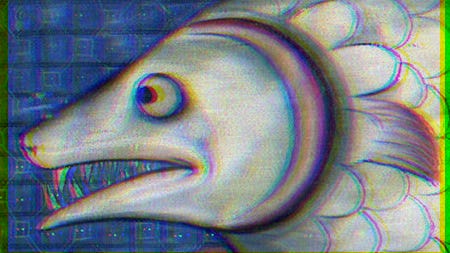In the month of the snake
How dare we start again when everything is falling apart?
Though neither God nor the Bible ever intended it, the Hebrew month of Elul (which is now) is the crux of the year, the eye of the snake that is set on eating its own tale. The mournful Tisha B’Av has passed, as has its insistence on reverberating failures down the centuries and its fixed story of paths that cannot be taken because the roadmakers were slaughtered and their children are lost in the woods.
Elul is the crux because it comes before the contradiction to all that. Rosh Hashanah is premised on the idea that there is always another beginning, and that beginnings are just as inevitable as ends. Tisha B’Av: the mournfulness of a people that can never turn around, not even to say goodbye to their own past, never receiving closure, never allowed to be released into a pillar of salt. Rosh Hashanah: the clap of the slate that signals the start of a new take, one, two, three, four, ten thousand and one, two, three…
So Elul is a tangled mess. The shofar blasts warn of what is about to happen, but do we want it to happen? As life goes on and the years whip past faster and faster, the idea of newness feels less and less possible, more and more of a farce, just another candle on a burned-out cake. In the midst of a nation-spanning story of decay that we can all see and all dread, what is the point of the fantasy that we are at the beginning? How can we do anything but resent the notion that this is the start, no this, no this, no now. Why should we trust that this start will conclude in anything but another Tisha B’Av, all raindrops flowing to the same ocean of tears? Rosh Hashanah believes that time is a circle, but the circle always unravels into a tangle, and the snakehead of the year always slinks into a snake tail that finds itself in its own jaws. Who would do this to themselves?
I don’t know, but I’m an Elul man. I am caught like this: between regret and renewal, between permanence and yet another new start. The first obligation of the Bible is that the moon is always new again; the first letter of the Bible is the second letter of the alphabet, and yet it starts the word bereishit, “beginning.” True beginnings always bloom in the place you least expect: the middle.
And so, we go into the new year with that same insane insistence that we don’t know what will happen next, that this year may really end in Jerusalem, or turn purple and dance a polka, or drop a holiday or two. We begin the new year in spite of ourselves and our infatuation with history and our unshakeable trauma. We begin knowing that opening ourselves up the possibility of change may create more scars, will expand the space in which we can feel disappointed with ourselves.
We can never begin again. We must always begin again. Against odds, we hope.


